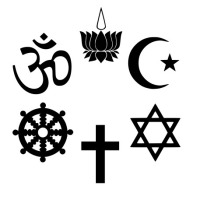
If the funeral home arranged for the clergy, you may have already paid a fee in your funeral bill. When hiring clergy directly, most charge a fee and communicate this upfront. You may want to follow up to see if you’ve already paid a fee or if you need to handle this.
Clergy affiliated with religious organizations usually preside over funerals and memorial services for their members and do not expect a fee. But it’s prudent to check this out. It’s common to show your appreciation by way of donations in the name of the clergy to the religious organization or to their discretionary spending fund. Or, you may make a direct donation to an appropriate nonprofit organization, acknowledging the clergy’s support during your time of loss.
If the service and eulogy were particularly touching or the clergy helpful or caring, it’s very appropriate to write a personal note. Most people feel good knowing they’ve made a difference in someone’s life; clergy members who frequently deal with loss may especially appreciate hearing how they helped you during a difficult time.
Robbie Miller Kaplan is an author who writes from a unique perspective as a mother who has lost two children. She has written How to Say It When You Don't Know What to Say, a guide to help readers communicate effectively when those they care about experience loss, available in ebooks for "Illness & Death," "Suicide," "Miscarriage," "Death of a Child," "Death of a Stillborn or Newborn Baby," "Pet Loss," "Caregiver Responsibilities," "Divorce" and "Job Loss." All titles are in Amazon's Kindle Store.


 RSS Feed
RSS Feed
